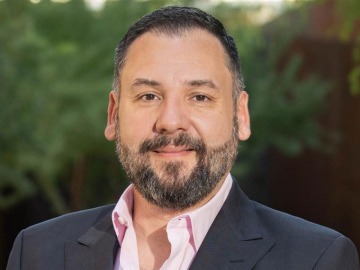Q&A: Joe Carella, Eller Executive Education

Joe Carella has overseen Eller Executive Education since 2016.
Eller Executive Education was launched in 2006 to provide professional development to business executives. Since then, it has seen significant success, landing partnerships with companies including Microsoft Corp. and Caterpillar Inc., and earning a ranking of No. 5 nationally and No. 15 overall on the Financial Times 2019 list of top executive education programs.
Joe Carella became assistant dean for Eller Executive Education at the Eller College of Management in 2016. He has more than 20 years of experience in executive education, including working as a strategy consultant for Ernst & Young and for the 2012 Olympic Games in London. Carella spoke with Lo Que Pasa about Eller Executive Education's mission, growth and future.
Can you describe what Eller Executive Education is and how it works?
Eller Executive Education is a nonprofit that is affiliated with the University of Arizona. We are the engine that drives nondegree, executive-level management and leadership programs for the University. We partner with businesses and organizations around the world to address challenges they will encounter in the Fourth Industrial Revolution. Our areas of expertise include digital transformation, decision making and helping companies become more agile, adaptable and innovative.
Are the faculty all from Eller?
It is a mix. We will also use faculty from other University colleges as well as industry experts, depending on a client's needs.
How are your programs delivered? Are they onsite and in-person, online or something else?
Programs are delivered online, hybrid, on our campus and all over the world. We have delivered programs in Japan, Singapore, Dubai and Dublin, and the list goes on.
EEE works with clients across a wide range of industries. Do they share the same kinds of challenges or does each client have unique needs?
There is a careful balance to be had between understanding what are common challenges to industries, but also recognizing challenges that are specific to each sector. We will bring in industry experts as needed or take advantage of the expertise that's already in the room in the form of the participants in the program. That's why it's important that a faculty member, who may be a subject matter expert in decision making, for example, is also an effective facilitator. It's a powerful combination. Each leader is on his or her own journey of training and development. Helping them recognize and understand what that journey looks like is something that cuts across industries.
How do EEE faculty translate research in the areas of leadership development and business management into solutions for executives and their companies?
We are reliant on our faculty's continuous development. If you are a subject matter expert, our expectation is that you will continue to be aware of what is going on in your field. We have also created a pool of academic directors who are not only subject matter experts, but also know how to best harness the talents of our faculty and are students of the neuroscience of learning. These individuals are continually keeping up to speed on how our brains work, the difference in learning capabilities among different age levels, and more. We use these academic directors as the lead designers of our programming.
The Financial Times ranked Eller Executive Education fifth nationally and 15th overall in 2019. What is Eller Executive Education doing to make itself stand out?
Many organizations are looking for a university partner for their in-house training programs. Many of these universities have what I call "musty plaid-jacket professors," who teach from the front of the classroom, share ideas, then essentially say to the participants, "You figure out what to do with what I'm teaching." The reason we have been so successful is that we recognize that this is a long-term partnership, and that individuals who attend our programs are looking to us to give them guidance on how to apply some of the thinking. Our faculty acts not just as subject matter experts, but also as facilitators. We are a big proponent of experiential learning through programming like business simulations and hackathons.
What are your future goals for Eller Executive Education?
For me, success will look like deeper partnerships with companies and organizations. I'd like deeper partnerships that involve not only the Eller College of Management, but other colleges throughout the University. I'd like these organizations to trust us to be their thought partner in more ways than just the development of their leaders.
What would you like the campus community to know about Eller Executive Education?
Two things: We offer scholarships to our executive education programs – and any manager is welcome to reach out if they are interested in developing their skills. Although we cannot promise everyone a spot as we are still small, we welcome applications. I'd also like them to be proud of our little unit here on campus. Last year we were ranked higher than some of the better-known Ivy League schools and a couple of the posh British schools too.

